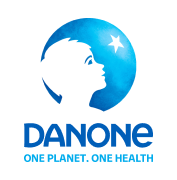- Story
7
min time reading
Gut health: The invisible ally for a healthier future
- Research & innovation

When we talk about health, we often think of what we can see, measure, and track. But one of the most powerful allies is invisible: the gut microbiome. Once considered a niche topic, it is now recognized by researchers, healthcare professionals, and consumers alike as a powerful influencer of digestion, immunity, metabolism, and even mental health. As the leader of Danone’s global R&I teams, I see the gut microbiome as a vital yet often overlooked pillar of our health. What we eat and drink every day profoundly shapes it — and with it, our overall well-being.
At Danone, this belief is not new. Our founder, Isaac Carasso, created the first Danone yogurt over a century ago to support children’s intestinal health, using cultures from the Pasteur Institute. I’m proud to lead teams that continue this legacy today, combining cutting-edge scientific expertise with deep consumer understanding to develop products, for all ages and stages of life, that positively impact the gut microbiome. In other words, to bring health through food to as many people as possible.
Listening to consumers, leading with science
Recent studies show that 8 out of 10 people experience digestive discomfort1, yet more than a third do nothing to support their gut health. This tells me that there is an urgent need for education, innovation, and accessible solutions. At Danone, we’re responding with science-backed products and a deep commitment to understanding consumer needs. Our research shows that 71% of French consumers believe that yogurt benefits the gut microbiome, and 7 in 10 consume yogurt for health reasons1. This is a powerful signal.
Making the invisible visible
To accelerate our impact, we have inaugurated the Danone OneBiome Laboratory at our global Research & Innovation Center in Paris-Saclay. Building on expertise developed in Singapore, this state-of-the-art facility is designed to decode the complex relationship between diet, microbiota, and health across all life stages – from infancy to ageing.
Using advanced DNA sequencing, AI-powered modeling, and large-scale data analysis, the Danone OneBiome Lab will help our teams to identify microbiome imbalances and develop targeted nutritional solutions. It’s a bold step toward targeted nutrition, grounded in robust science and real-world impact.


Accelerating science into action
In 2025, we acquired The Akkermansia Company, a biotech pioneer working with Akkermansia muciniphila – a promising strain known to reinforce the gut barrier, reduce inflammation, and support metabolic health. This acquisition strengthens our leadership in microbiome innovation and reflects our Renew Danone strategy in action: science-led, mission-driven; and future-focused.
Danone R&I: A global force for health
Behind these innovations is a global network of over 2,000 experts, €447 million invested in R&I in 2024, and more than 5,000 patents. With two flagship research centers in Paris-Saclay and Utrecht, and collaborations with leading institutions worldwide, we’re turning scientific breakthroughs into everyday nutrition. Our brands – from Activia to Alpro, Fortimel and Evian – are not just products. They are solutions. They reflect our commitment to supporting health at every stage of life.
5,000
patents
2,000
experts
447M
invested in R&I in 2024
Shaping the future of food and health
As Head of Danone’s global R&I, I believe the gut microbiome is one of the most powerful yet underappreciated levers of human health. It may be invisible, but its impact is undeniable — and what we eat and drink every day plays a critical role in shaping it. At Danone, we’re not just studying the microbiome; we’re translating science into action. Through pioneering research, purposeful innovation, and delicious, tasty products designed with the needs of consumers and patients at the center, we’re making the invisible visible — and helping build a healthier future for all.

1 Source: French Institute of Public Opinion (IFOP) study conducted in 8 countries, June 2025.
Methodology: the IFOP survey (June 2025) was conducted among a sample of around 1,000 individuals, representative of the population aged 18 and over in France, Spain, the United Kingdom, the United States, Japan, Morocco, Argentina, and Mexico. The representativeness of the sample was ensured using the quota method (gender, age, occupation of the respondent), following stratification by region and type of urban area. The interviews were carried out via a self-administered online questionnaire from June 2 to June 6, 2025.


















































